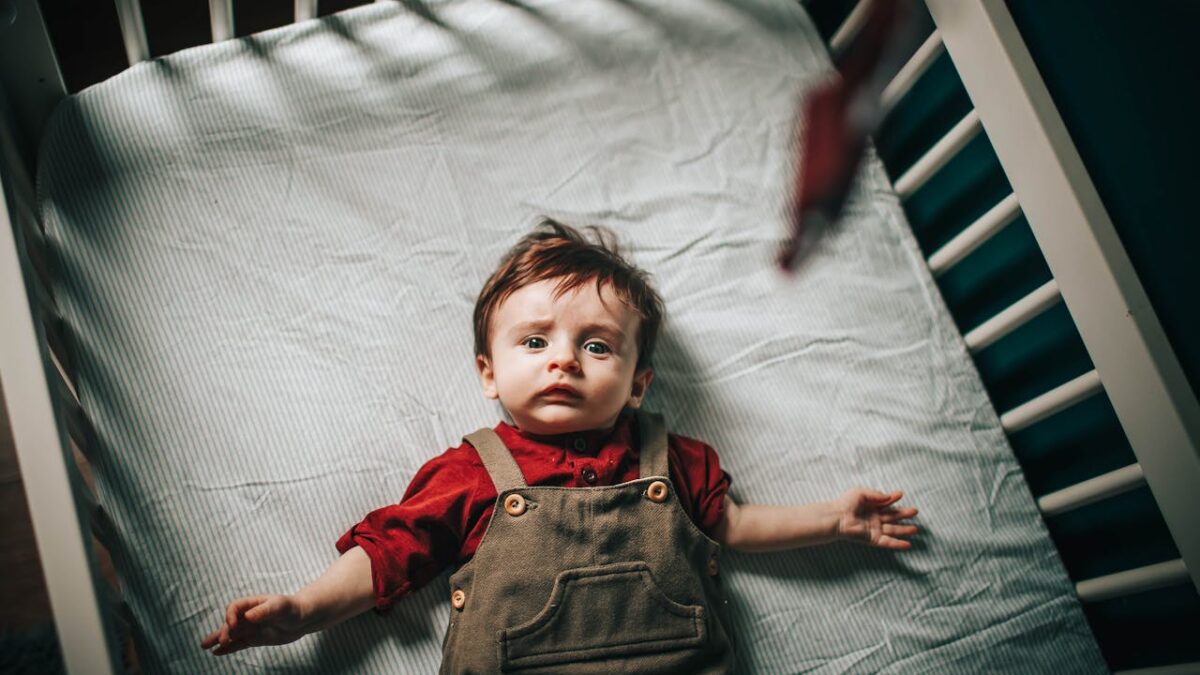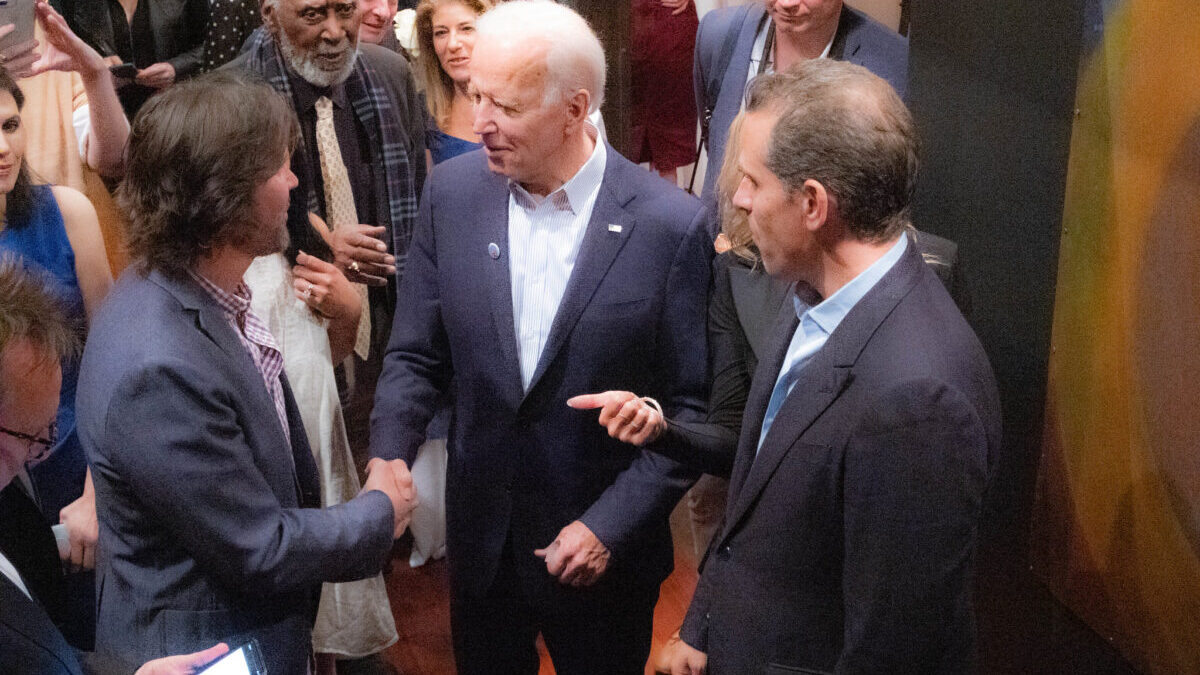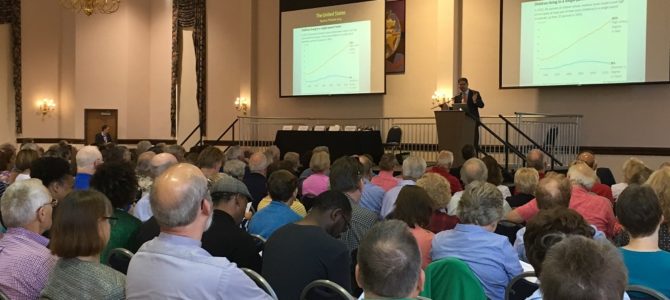
On Aug. 23, eight-year-old St. Louis resident Jurnee Thompson was leaving a high school football game with her family when gunfire broke out. Jurnee was among four people taken to the hospital with gunshot wounds. She alone died, another child caught in the wave of murder attempts that hit the city this summer.
On Sept. 14, a group of St. Louis leaders and volunteers gathered at Saint Louis University to talk about gun violence and other seemingly intractable difficulties facing the city: poverty, teenage pregnancy, mass incarceration, and the breakdown of the family.
The event, “Poverty, Family Structure, and the Way Forward,” was hosted by the Society of St. Vincent de Paul—Archdiocesan Council of St. Louis in conjunction with 18 religious and secular partners. The guest speaker, sociologist and University of Virginia professor Dr. W. Bradford Wilcox, has researched extensively about the connection between family breakdown, declining church attendance, and the cycle of poverty.
‘We Must Stop Killing Each Other’
The panel discussion after Wilcox’s presentation demonstrated that the ongoing violence in the city weighs heavily on residents’ hearts.
“We must stop killing each other,” said James Clark, a vice-president at Better Family Life in St. Louis. “We don’t have a police department problem. The police are on the back end. The problems that we see start within the family.”
Better Family Life offers a de-escalation hotline and series of de-escalation centers devoted to resolving conflicts before they lead to violence. Clark said the program has defused more than 85 potentially violent situations.
The Fathers’ Support Center helps absent fathers reunite with, and take responsibility for, their children. It offers a six-week “Family Formation” curriculum.
“We used to give out $75 a week … and we found that people would continue to come back for that check. But we have to teach them how to fish, give them an education,” said Cheri Tillis, executive vice-president of Fathers’ Support Center. In week four of the six-week class, students participate in a hiring fair with employers who come prepared “to hire our clients on the spot, that day, because we’ve already prepared them.”
In fiscal year 2019, in a pilot project with the state of Missouri, Fathers’ Support Center was responsible for more than $1 million of recouped child support from fathers who were not previously contributing. Tillis also reported that, in 2018, Fathers’ Support Center was responsible for $8 million in local economic activity as the result of its clients obtaining and maintaining employment.
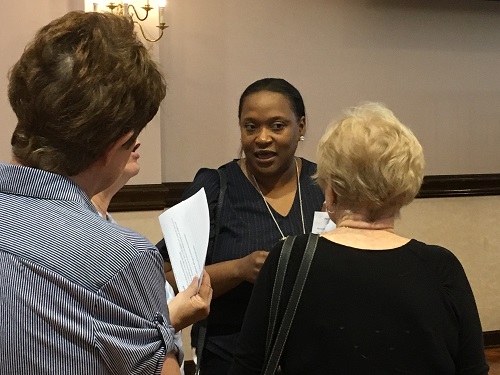
Breaking Cycles of Evil
Why did the Society of St. Vincent de Paul, an organization that is perhaps best known for its donation trucks and thrift stores, organize a Saturday-morning summit on the decline of the American family?
The answer is that the Society does a lot more than take unwanted stuff off your hands. Founded in 1833 at Sorbonne University in Paris, the Society was named after a French priest known for his care of the poor. Two-hundred years later, it bills itself as the world’s largest social assistance organization. The Society offers air conditioning assistance, burial and cremation support, car repair and purchase assistance, disaster relief, a prescription drug program, a bed program, and housing and utility help.
Vincentians, as they call themselves, are trained volunteers organized into neighborhood groups called conferences. According to the Society’s website, in St. Louis in 2018, more than 3,400 Vincentians volunteered an estimated 343,000 hours, helped more than 344,000 people, and provided more than $8.4 million in direct aid to needy people in the St. Louis metropolitan area.
Speaking at the Sept. 14 event, John Foppe, the Society’s executive director, emphasized that Vincentians take a one-on-one approach, visiting those in need in their homes and helping on a personal basis. “They see poverty,” Foppe said. “How can we break the cycle so that children have every opportunity to flourish? There are no easy answers.”
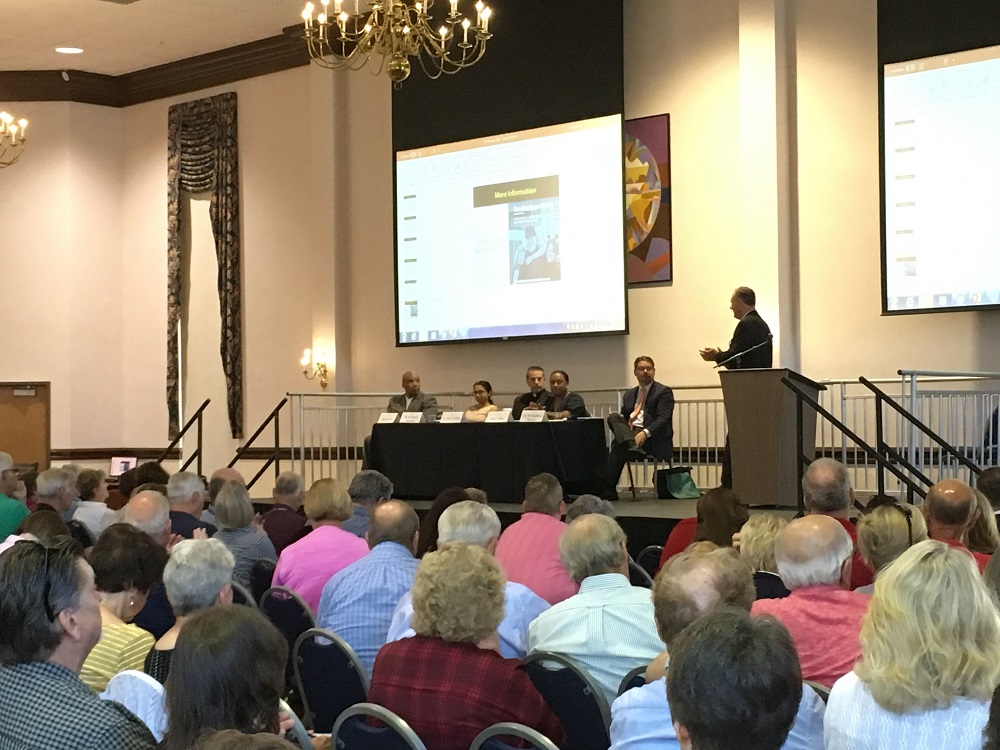
The Importance of Intact Families
Keynote speaker Wilcox began by highlighting the “growing class divide in marriage.” Fifty years ago, the majority of Americans lived in intact families. But today, while the educated and affluent continue to enjoy relatively stable marriages, the poor and working class are less likely to do so. Why the difference?
Wilcox touched on a variety of possible causes, from economic to cultural to policy. Today, he said, most Americans “honor the ideal of marriage in theory” but “are increasingly tolerant of departures from the ideal.” Among his students at University of Virginia, who are mostly from higher-income families, “56 percent say it’s okay to have a baby outside of marriage, but 91 percent say their parents would freak out” if they did so. It’s not so among young people from lower-income families, who more often actually live out this permissive message, and suffer for it.
Wilcox discussed the connection between church attendance and family breakdown, pointing to research demonstrating that people connected to churches are more likely to get and stay married. But in the last 50 years, as church attendance has declined in the United States, the decline has been even steeper for lower- and working-class Americans than for the college educated.
Wilcox, himself reared by a single mom, was careful to note that “coming from a non-intact family is not a death sentence,” and said many children from single-parent homes thrive. But he insisted the research is clear that growing up without both parents in one’s home increases the risk of many negative outcomes.
Those negative outcomes, he added, don’t affect only the child and his immediate family; they have a ripple effect. The Opportunity Atlas, a collaboration among researchers at the U.S. Census Bureau, Harvard University, and Brown University, attempts to answer the question, “Which neighborhoods in America offer children the best chance to rise out of poverty?” by using anonymous data on 20 million Americans who have been followed from childhood to their mid-30s. The atlas, said Wilcox, illustrates what we all already know: What happens in our families doesn’t just matter for our own children; it matters for our neighbor, community, city, and country as well.
What’s to be done? Wilcox offered several suggestions:
- Ensure that public policy does no harm to marriage, especially to low-income families, many of whom receive means-tested benefits that penalize those who are married.
- Strengthen vocational and apprentice-based educational opportunities. Even in today’s college-focused economy, the majority of Americans do not get a college degree.
- Move toward a family wage by implementing a wage subsidy. Wilcox suggests an amount equal to half the difference between median hourly wage and the market wage.
- Launch a cultural campaign in support of marriage along the lines of what has been done to discourage smoking, drunk driving, and teen pregnancy.
- Redouble efforts to get low-income and working-class people back to church through church-based job ministries, community outreach, and what Wilcox called “practical preaching that appeals to ordinary men and women.” He emphasized that the church’s teaching about marriage and family provides the best path out of poverty but that churches largely fail at getting the message out.
Help One Person at a Time
Near the conclusion of Saturday’s two-hour event, an audience member asked the question on everyone’s mind: We intuitively know the importance of intact families and church connectedness. But what do we do with this knowledge? How do we change hearts and minds? How do we fight against all these forces that continue to undermine the family?
The answer was simple: start small, but do something, whether it be simply to witness to the power of marriage and family in your own life, to help individuals you see who need it, or to get involved in a broader effort to make a difference by giving your time or money to a worthwhile organization. Meanwhile, study difficult issues, and share what you have learned with others.
Panelist Father Chris Collins, assistant to the president for Mission and Identity at Saint Louis University, gave voice to the audience’s sense, after listening to a “big presentation on multiple aspects of a massive set of problems,” of feeling paralyzed.
He acknowledged that “we have a ton of work to do in our world and in our neighborhood and in our city” but said the work boils down to “one person at a time … support[ing] people while they are in vulnerable circumstances … build[ing] up the human heart so that [it] can have the capacity to be given away, whether in marriage or in raising a family.”
Dr. Elizabeth Abraham, a pediatrician and nephrologist affiliated with St. Teresa Pediatrics, and the fourth member of the panel, echoed Collins in suggesting “small experiments. See what works and what doesn’t and learn from that.” As one who has been a Vincentian herself, Abraham also recommended getting out of one’s “comfort zone … and building relationships” that will provide opportunities to witness to marriage, God’s grace, and “life in Christ.”
Stop Talking, Start Doing
Better Family Life’s Clark bemoaned “analysis paralysis” and said it’s time to stop talking and start doing. “We’ve written books and gotten wealthy,” he said. “We understand the crisis. … Everything that needs to be said has already been said. Everything we need to hear has already been heard. This is the time for action.” He gave examples of Better Family Life’s neighborhood initiatives, “Pulpits to Porches” (restoring churches as centers of community service) and “Grill to Glory” (holding free neighborhood BBQ events on church grounds).
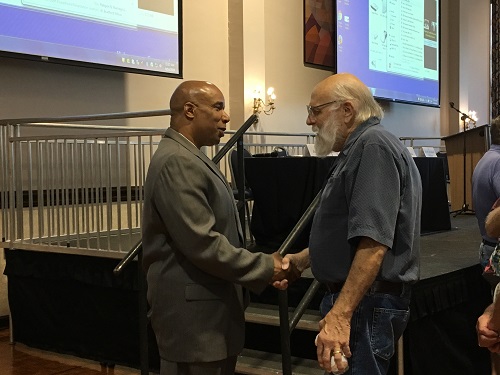
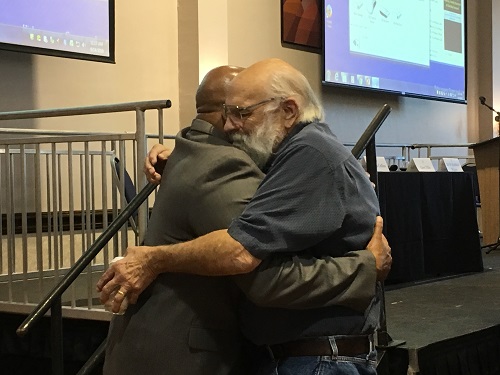
Clark gave another example of action, this one involving a Vincentian. He noted that St.Vincent de Paul’s John Heithaus has helped relocate five people who, “had we not gotten them outside of St. Louis, they would have wound up dead or shot.”
While there is some encouragement to be found in declining poverty, divorce and abortion rates, those societal scourges are far from being solved. Meanwhile, deaths from suicide, opioid addiction, and gun violence are on the rise. In some cities, homelessness is also on the rise. What can one person do?
On a Saturday morning in St. Louis, I heard a lot about what one person — and a caring, determined community — can do.



